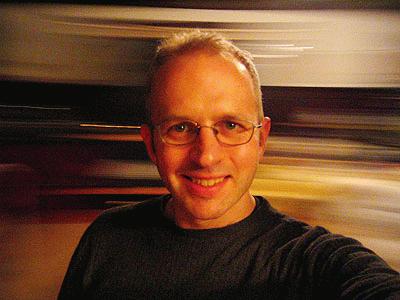
Burns: IT navigation for neuroresearchers sailing in a vast sea of facts
His mission: conquering neurobiology information overload. Gully A. P. C. Burns, a British specialist in neuroinformatics, has arrived in the Institute’s Intelligent Systems Division.
His immediate research focus at ISI will be continuation of the NeuroScholar knowledge management platform for neuroscience data, a technology for automated extraction of research results from published articles.This effort began at the Neurobiology Section of the USC College department of biology, where Burns worked beginning in 1997 as a Research Assistant Professor.
“The purpose of the open-source system is to provide experimental neuroscientists with the capability to manage their knowledge resources (experimental notebooks, research articles, schematic diagrams, etc.) by superimposing a computational scheme that permits searching, evaluation and inference,” reads the NeuroScholar web site description.
“The information required is scattered throughout a number of knowledge sources (in the literature, on the web, in local data files in the lab). By automatically extracting just the pertinent informaqtion from the large numbers of online texts, reformatting it, and storing it in a database, NeuroScholar permits users to capture fragments from the knowledge sources, which then can be used to define knowledge representation items within the primary system,” the account continues.
Burns is the PI on this study, which is funded by a $1.2 milllion grant from the National Library of Medicine (NIH).
In addition to building NeuroScholar, Burns sees his mission at ISI as creating links between the biologists at University park campus and the computer scientists at ISI.
“I hope that this activity may produce new project opportunities for ISI researchers,” he says.
In the longer term, Burns hopes to start a research group for biomedical knowledge engineering, aimed at helping biomedical researchers who must digest huge numbers of papers and remember large quantities of facts. “By providing computational support for this process, I believe that the scale of biological problems that may be addressed will increase in size, scope and impact,” he says.
Burns also worked in the USC department of biology creating NeuARt II neuroinformatics infrastructure for brain atlases — maps of the interconnections of the brain.
He has a BSc. in Physics from Imperial College, London (where he achieved 1st class honors) and a D.Phil. in Physiology from Oxford University, where he held a Wellcome Prize Fellowship.
below: NeuroScholar architecture

Published on July 20th, 2006
Last updated on June 6th, 2024










